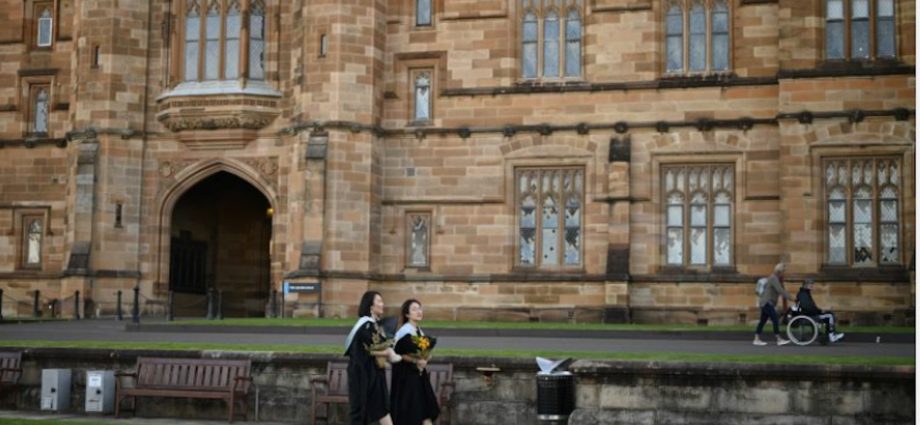Since the Lowy Institute’s first “Being Chinese in Australia: Public Opinion in Chinese Communities” survey was published in 2021, Australia’s relations with China have undergone significant upheaval.
The Covid-19 pandemic, the rupture in Australia–China relations, the election of a Labor government and the turbulence in both countries accompanying their re-openings after their Covid-19 lockdowns have placed Chinese-Australian communities in the public spotlight.
Chinese-Australians and their association with Beijing have come under the microscope from the Australian government, media and the public — often in intensely political circumstances.
While the Labor government has eschewed megaphone diplomacy with China — an approach favored by the former Coalition government — certain parameters have been set for the way Australia views and engages with China.
Still, Chinese-Australians have welcomed the political re-engagement between Australia and China.
The “Being Chinese in Australia: Public Opinion in Chinese Communities” survey report released in April 2023 shows that 37% of Chinese-Australians think Australia-China relations will be a “critical threat” to Australia’s vital interests in the next 10 years – a 14% drop since 2021.
The greater sense of optimism about Australia-China relations coincides with more positive feelings towards Australia in general. For example, 92% of Chinese-Australians say Australia is a “good” or “very good” place to live in the 2023 survey.

Chinese-Australians trust Australia most to act responsibly in the world, reinforcing their growing connections to Australia. Meanwhile, their sense of belonging to China and the Chinese people has declined, dovetailing with a drop in trust in China. Now less than half of the Chinese-Australian population has confidence in China’s President Xi Jinping.
Intense debates about China are now mainstream in Australian politics and this has placed Chinese-Australians in an uncomfortable position.
News headlines warning about the prospect of war do not align neatly with Chinese-Australians’ threat perception. Six out of ten Chinese-Australians say China is unlikely to be a military threat to Australia in the next 20 years.
Seven in ten Chinese-Australians believe Australia should remain neutral in the event of a military conflict between China and the United States – a view shared by only half of the Australian population.
Yet there are differences within the Chinese-Australian communities. Of those born in mainland China, 73% say Australia should remain neutral compared to 65% of those born in Australia and 61% of those born in Hong Kong.
But the headlines and aggressive political rhetoric about China homogenizes and reinforces public perceptions about China and inadvertently, Chinese-Australians.
The political rhetoric about China has changed under the Labor government. But more work needs to be done to create a cohesive Australian society in the face of persistent discrimination and negative portrayals of China and ethnic Chinese in the media.
The evolution of the Australia-China debate and its impact on Chinese-Australian communities show that foreign and defense policies and national security should not be treated as separable from domestic politics. Public discussions about such policies have a quantifiable impact on a large proportion of Australia’s population.
How Australia should navigate the intersection of national security and social cohesion with China is uncertain. Increasing cultural and linguistic diversity among Australia’s national security and intelligence community could help.
Australia’s Chinese diaspora and their bicultural skills should be channeled as an asset into helping navigate the Australia-China relationship.
Workforce diversification is not a new argument and some will contend that it will not change Australia’s basic orientation when it comes to national security. But from a technical expertise perspective, Australia’s intelligence community is lacking cultural and linguistic diversity.
Government departments involved in managing Australia-China relations appear to be ill-equipped for the strategic moment when only 1.2% and 1.7% of Department of Foreign Affairs and Trade staff and the defense workforce respectively are proficient in Mandarin.
Diversity in key intelligence institutions creates “a synergy of different perspectives” to address complex issues that can increase the array of policy options available to governments. Australia could start seeing Chinese politics in a more nuanced way rather than as a pyramid where President Xi sits on top.

There is a lot of policy entrepreneurialism at the local level in Chinese politics and local officials often conduct government affairs that subvert the complete control of the Chinese Communist Party.
Perhaps those who make calculations about China’s role in Australia’s region will see that a myriad of interests shape China – and that a one-size-fits-all policy does not suffice when managing Australia-China relations – if they accept that China is more complex than Xi and the Chinese Communist Party.
Greater cultural and linguistic diversity in government will ultimately shape how Australia sees Chinese-Australian communities too. They are pluralistic and diverse with skills that can benefit the nation.
The lack of diversity across key Australian public and international facing institutions presents huge obstacles when addressing the complex nature of Australia’s relationship with China, let alone with the world.
Jennifer Hsu is Visiting Senior Fellow at the Social Policy Research Centre, UNSW and is the author of Being Chinese in Australia: Public Opinion in Chinese Communities and was previously the Project Director of the Multiculturalism, Identity and Influence Project at the Lowy Institute.
This article was originally published by East Asia Forum and is republished under a Creative Commons license.

